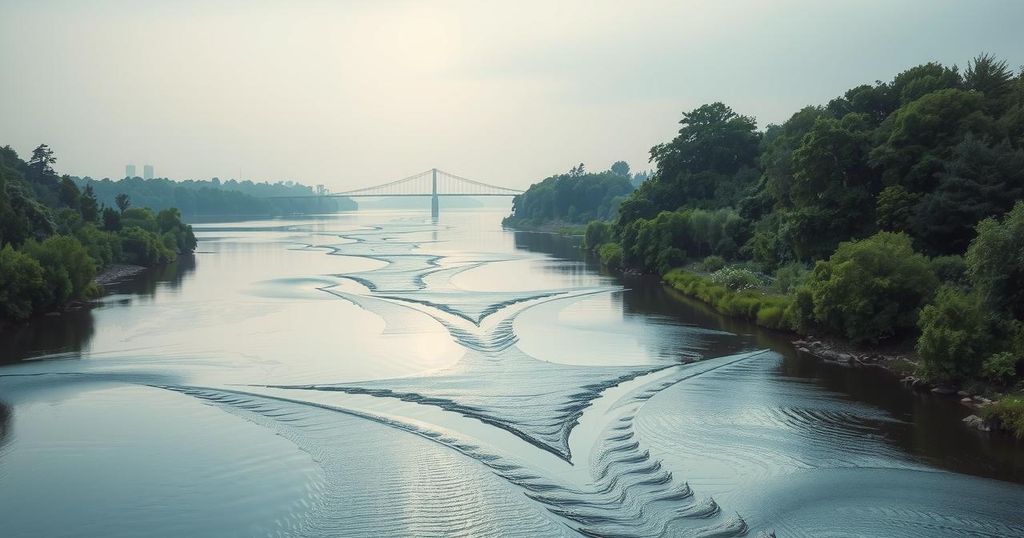Russian forces are attempting to seize positions across the Dnipro River to support territorial claims in the Kherson region, experiencing high casualty rates in their efforts. Ukrainian Governor Oleksandr Prokudin stated that despite directives from Russian leadership, the missions are viewed as perilous. He outlined three scenarios for the war’s outcome, emphasizing the ongoing struggle for both military and diplomatic stability, underscoring international partnerships.
Ukrainian officials report that Russian troops are engaging in high-casualty missions to establish a presence across the Dnipro River as part of their strategic objectives in Ukraine. Oleksandr Prokudin, the governor of Kherson, highlighted that Russian forces are attempting to cross the river at four specific locations to substantiate their claim over the entire Kherson region, one of four Ukrainian areas that Russia seeks to annex. Despite these repeated attempts, Prokudin noted that the Russian military’s personnel reportedly recognize the significant risks involved, with many considering their missions as “suicidal”.
Prokudin, who was appointed by Ukrainian President Volodymyr Zelenskyy, indicated that Russian leadership is directing troops to capture critical positions across the river to strengthen their negotiation leverage. Thus far, these efforts have not yielded successful territorial gains. Prokudin elaborated that casualties among attackers are immediate, reinforcing the perception that these operations are extremely hazardous. According to recovered documents, Russian soldiers assigned to these missions include both recent recruits and veterans with over two years of combat experience in Ukraine.
Despite initially capturing the Kherson region early in the conflict, Russian forces retreated from the west bank in late 2022 due to supply issues. Nonetheless, Russia continues to seek to reinforce its claims on the region, which it unilaterally annexed in late 2022, asserting its ownership over the residents. Kherson is strategically significant, controlling the mouth of Ukraine’s primary river, and although the pre-war population was around 1 million, only approximately 155,000 remain on the Ukrainian-controlled side, enduring persistent drone and artillery attacks.
Russia appears to be striving for maximal territorial control before potential peace negotiations. While Ukraine firmly asserts that it will not surrender any territory, officials recognize the limits of regaining land through military means. Prokudin suggested that Russia aims to demonstrate a presence on the right bank of the Dnipro, thereby substantiating claims to the entire region amid shifting diplomatic dialogues, especially as the U.S. engages in direct negotiations with Russia.
Russian aggressions are concentrated in four areas, specifically on the fraught islands at the Dnipro’s mouth, the Antonivka road and rail bridges within Kherson city, and upstream at the villages of Lvove and Zmiivka. Looking ahead, Prokudin outlined three potential scenarios for the war’s resolution: the emergence of a pro-Russian regime in Ukraine, a negotiated settlement contingent on security guarantees for Ukraine, or a prolonged stalemate at the existing frontlines that would allow Russia time to fortify its forces.
On a recent trip to the UK, Prokudin finalized an economic partnership agreement with Lincolnshire county, paralleling the agricultural focus of both Kherson and Lincolnshire. Furthermore, Lincolnshire has welcomed 1,000 Ukrainian refugees as part of its humanitarian efforts under the Homes for Ukraine initiative.
In summary, Russian military actions along the Dnipro River indicate a desperate attempt to solidify territorial claims amid ongoing conflict. The high casualty rates amongst attackers highlight the perilous nature of these operations. As Ukraine remains steadfast in its refusal to cede land, the potential future scenarios reveal complex diplomatic dynamics and ongoing challenges in both military and civilian fronts. Prokudin’s visit to the UK underscores the importance of international cooperation and support for Ukraine during this crisis.
Original Source: www.theguardian.com




